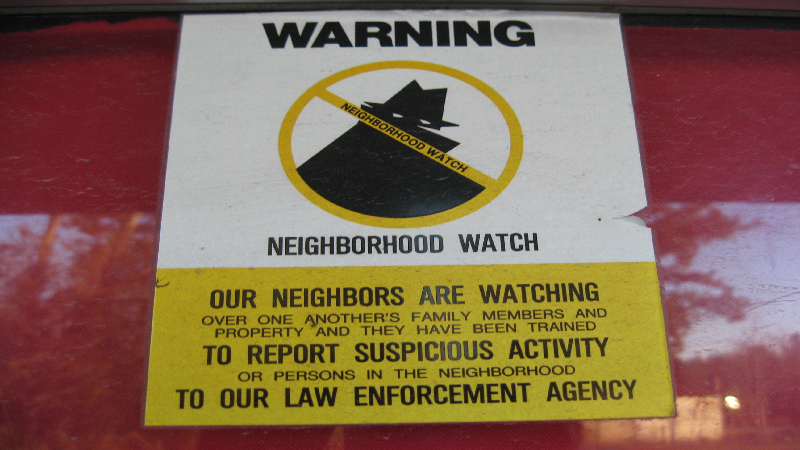As crime levels in the Western Cape remain a serious cause for concern in many communities, neighbourhood watch groups are an essential tool in fighting the scourge of crime within residential areas. However, while the City does provide various forms of support to established and accredited neighbourhood watch groups, members of these neighbourhood watch groups charged by the same criminals whose apprehension they assist in will find themselves short of support during legal proceedings.
A neighbourhood watch member’s role is solely to be the eyes and ears of police, according to the deputy director of the Neighbourhood Watch Project at the Western Cape Department of Community Safety, Ayesha Fortune.
“The role of the neighbourhood watch is to be the eyes and ears of police – they must report crime. Neighbourhood watch members are normal civilians and do not have any law enforcement powers,” said Fortune.
“Neighbourhood watchers should never put themselves at risk of being hurt… as a neighbourhood watch member, the first thing you need to do is call on SAPS.”
However, this is easier said than done. South Africans are no stranger to the reality that calls to the South African Police Services in many communities often only yield a police presence long after the situation has changed or the criminal has successfully fled the scene of the crime. Despite this, the City maintains that neighbourhood watch members have no law enforcement capacity and does not condone the carrying of weapons, such as batons, by watch members.
“We do not condone batons… if they [neighbourhood watch members] have a firearm, then obviously the firearm license applies to that,” said Fortune.
Establishing a neighbourhood watch
Several steps need to be followed if you wish to establish an accredited neighbourhood watch in your area, according to Fortune.
“You have to call for a meeting in your area with the community and inform them that you want to establish a neighbourhood watch. You need a minimum of 10 people to start and you must explain what the neighbourhood watch is going to do as well as the time commitment required in membership.
Thereafter, you establish an interim executive committee and write up your constitution that will be specific to your area’s needs.”
If you are lost as to how to create such a constitution, you may ask the department of community safety for a template.
You also need to contact your local CPF and SAPS branch to inform them of your intentions. Thereafter, you can set a date for your first public meeting, inform the community and invite the CPF, SAPS and the department to be present, explained Fortune.
“At the meeting, you’ll explain what the neighbourhood watch will do, the area it will cover and what will be expected of participants. You will call for a quick election to formalise the appointment of the executive and then you can apply for accreditation at the department.”
She indicated that applications for accreditation can take up to three months to process but highlighted that the department generally tries to expedite these applications. Fortune also explained that accreditation for a neighbourhood watch group is valid for a period of two years.
Training
Free training is provided by the City to all accredited neighbourhood watch groups in Cape Town and such training generally takes place over weekends. A minimum of 20 neighbourhood watch members need to be participants in each session.
The City also provides funding to the value of R10 000 and free equipment starter packs to all members of the neighbourhood watch.
“We provide a standard starter kit to all members – they get strobe lights for their vehicles, magnetic decals, reflective vests, safety whistles, torches, fire extinguishers, first aid kits and a storage box.”
“Funding is provided but you must be accredited in order to qualify. Currently, we give once off funding in the amount of R10 000 to each neighbourhood watch structure, but it must be utilised toward operational costs and administrative fees.”
Operational costs include additional equipment and fuel expenses. However, the funding is public funding and must therefore be accounted for – money received and spent must be recorded in detail. The neighbourhood watch structures and their expenses will be assessed and monitored.
Fortune clarified that the City does not provide legal assistance to neighbourhood watch members where and when legal cases arise.
VOC






 WhatsApp us
WhatsApp us 

